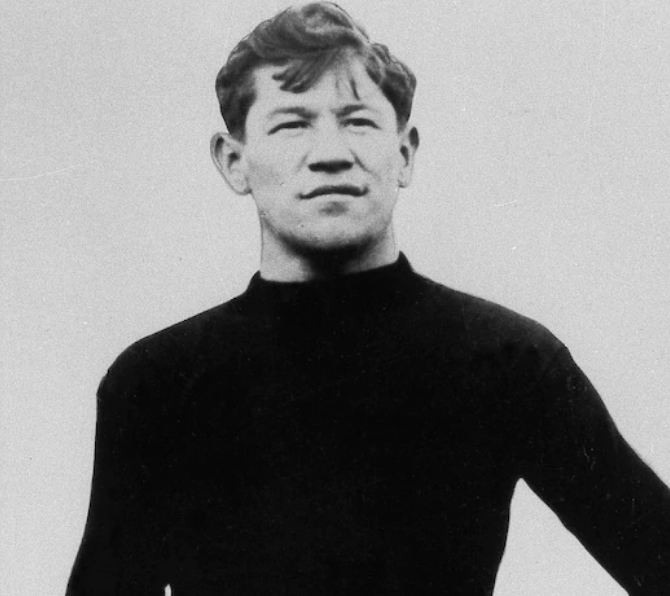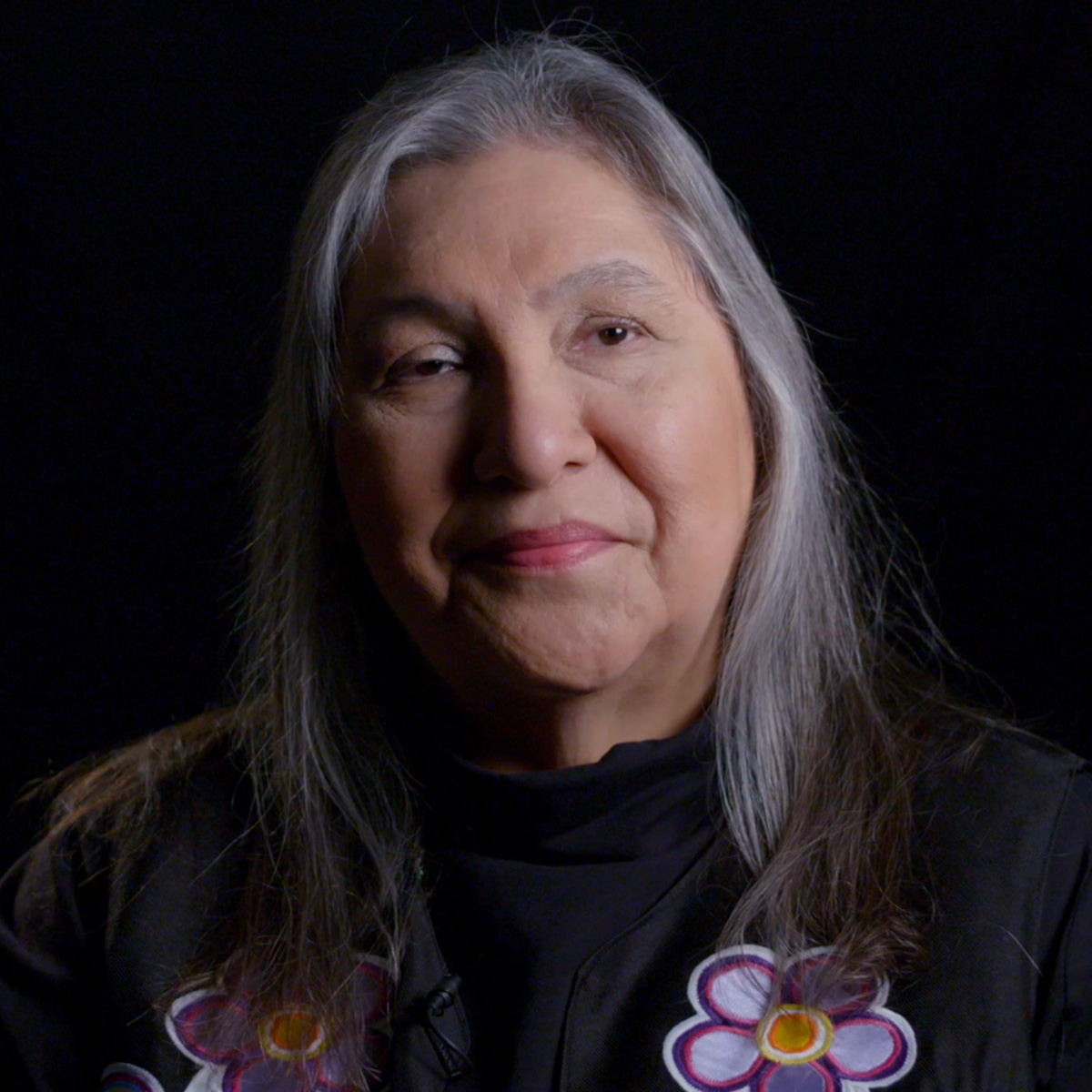
- Details
- By Nedra Darling
Opinion. When sports icon Jim Thorpe met with other founders over a century ago to establish the rules for what became the National Football League, he made one thing clear: the league was not going to jeopardize the careers of amateur athletes.
Jim, an American Indian Olympian hailed as the greatest athlete ever, knew firsthand the pain of being stripped of Olympic gold medals over unfair allegations of professionalism.
The sports world owes it to Jim, who was the biggest star of the emerging sport of pro football, and the first president of the American Professional Football Association, known today as the National Football League, to right a wrong that has persisted to this day.
Jim was Sac and Fox and Potawatomi, raised near present-day Prague, Oklahoma on the Sac and Fox Reservation prior to Oklahoma statehood. Running barefoot and hunting game on the reservation, he would eventually run in the Decathlon and Pentathlon of the 1912 Stockholm Olympic Games, earning two gold medals and the title of the “World’s Greatest Athlete.”
While Jim may have excelled at track and field, his true love was football. He’d been a star for Coach Pop Warner at Carlisle Indian Industrial School in Pennsylvania, making the team of Native American grid stars a national sensation. Following the Olympics, he played Major League Baseball while simultaneously playing professional football with the Canton Bulldogs for several years.
There was nothing Jim Thorpe couldn’t do on the field of play: he could run, kick, tackle, and pass. He was fearless. But despite this, he was known for his sportsmanship, always helping up those he tackled.
Jim’s Olympic wins, and the subsequent stripping of those records after it was discovered he played baseball for mere room and board while an Indian ward of the state may be the most debated topic of Jim’s extraordinary life. While the loss of his medals and records was no doubt devastating and attributable to racism and unfair rules surrounding the definition of “amateurism” at the time, Jim Thorpe never complained.
Instead, Jim made the most of his life as an athlete, a role model for Native Americans and a founding father of the NFL. And it’s those contributions to the very start of the NFL as we know it that are often the most overlooked details of his amazing journey as an athlete and an iconic American hero.

As Jim’s star on the gridiron rose in the early 20th century, college football reigned supreme and baseball was America’s pastime. Although rising in popularity, and even with the Native American phenom Jim Thorpe as its star, few thought the more than 200 rag tag professional football teams traveling mostly across the eastern United States and Midwest could sustain a following. They certainly weren’t sure it could compete with more established professional sports like baseball, or even golf and bowling. But Jim’s dream was to share his love for the game with the entire country.
It was on the night of September 17, 1920, in Canton, Ohio, that Jim and 15 men met at the showroom of a Humpmobile Auto Dealership to bring rules and order to an otherwise very disorderly system of play that had been occurring across the country. There weren’t enough chairs to go around, so some delegates sat on the running boards of the cars in the showroom. It was the first professional football league with rules and regulations. A salary cap was introduced, and teams agreed not to sign college players or players under contract with another team. The very purpose of the league was to "raise the standard of professional football in every way possible,” according to the Canton Evening Repository newspaper.
Headlines the next day read “No Inducements to College Stars, says Thorpe.” A regular practice of the day was to hire college football standouts to put in double duty and play professionally on Sundays for their local club team. Aside from the issue of accepting payment as an amateur, football equipment of the day was not only lacking in protection, but the sport was still considered quite dangerous at the time – even deadly. Jim’s character, and his own hardships as it pertained to unfair rules around amateurism, made him more deeply committed to ensuring scenarios like what happened to him – unfair treatment at the hands of the International Olympic Committee – would never happen to another young man.
Jim made sure over 100 years ago the rules of football would allow games to be decided fairly on the field of play, not by committee after the fact. We owe it to him to return the favor. That’s why this Super Bowl Sunday I need your help. I’m leading an organization called Bright Path Strong, in hopes to restore Jim’s Olympic records. We want to send a strong message to the International Olympic Committee that enough time has passed. It’s time to honor Jim Thorpe by correcting his records. Add your name to https://petition.brightpathstrong.com/.
Nedra Darling (Prairie Band Potawatomi/Cherokee) is the co-founder of Bright Path Strong and executive producer of "Bright Path: The Jim Thorpe Story," an upcoming feature film.
More Stories Like This
The SAVE America Act Threatens Native Voting Rights — We Must Fight BackThe Presidential Election of 1789
Cherokee Nation: Telling the Full Story During Black History Month
Jesse Jackson Changed Politics for the Better
Native News Online at 15: Humble Beginnings, Unwavering Mission
Help us defend tribal sovereignty.
At Native News Online, our mission is rooted in telling the stories that strengthen sovereignty and uplift Indigenous voices — not just at year’s end, but every single day.
Because of your generosity last year, we were able to keep our reporters on the ground in tribal communities, at national gatherings and in the halls of Congress — covering the issues that matter most to Indian Country: sovereignty, culture, education, health and economic opportunity.
That support sustained us through a tough year in 2025. Now, as we look to the year ahead, we need your help right now to ensure warrior journalism remains strong — reporting that defends tribal sovereignty, amplifies Native truth, and holds power accountable.
 The stakes couldn't be higher. Your support keeps Native voices heard, Native stories told and Native sovereignty defended.
The stakes couldn't be higher. Your support keeps Native voices heard, Native stories told and Native sovereignty defended.
Stand with Warrior Journalism today.
Levi Rickert (Potawatomi), Editor & Publisher
